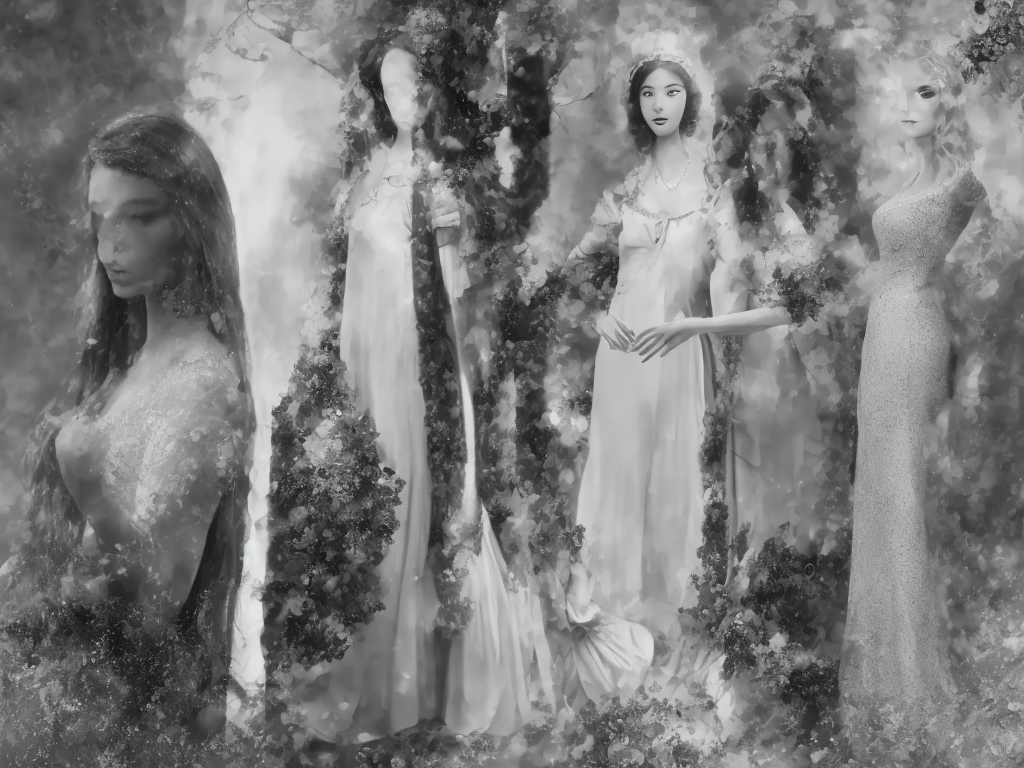
The terms woman and lady are often used interchangeably to refer to females, but there is a distinct difference between the two. While both refer to a person of the female sex, the connotations associated with each term are quite different. The terms are used to signify a woman’s age, behavior, class, or other characteristics, and they signify how women are perceived and treated by society. Here we will explain the difference between a woman and a lady.
The term "woman" is defined as an adult female human. It reflects a biological distinction to indicate the existence of a female reproductive system that makes the physical ability to bear offspring possible. It is a neutral term, and it does not carry any specific connotations. A "woman" can be of any age, background or profession, and it refers only to her gender identity. It is a basic term that describes a female human, and it's not focused on status.
On the other hand, the term "lady" often has a more restricted meaning, and it implies a certain level of sophistication or class. It originates from the Old English word "hlafdige," which means bread-maker or bread-kneader, indicating the Lady's societal position as the mistress of a household. Thus, a "lady" was someone of high social standing, often the wife of a lord or a monarch. The term gradually gained a broader meaning and came to signify women who were of a higher social status, education levels, and had some form of financial security.
Therefore, while both a woman and a lady can be used to describe a female human, the term "lady" carries additional connotations of class, social security, elegance, and genteel manners. It's not strictly about age but signifies a level of class and sophistication.
Moreover, the term "lady" is also associated with certain behavioral expectations. A "lady" is expected to behave in a polite, refined, and considerate way. Historically, a "lady" was expected to be submissive, agreeable, and obedient, serving the needs of others, especially men. Her education focused on polite arts and music rather than intellectual disciplines, and more importantly, she was not supposed to engage in any manual labor which was deemed as "unladylike."
However, the expectations of what constitutes an ideal "lady" have changed over time. The term "lady" is no longer restricted to just the upper-class elites but has become more loosely associated with sophistication, refinement, and gracefulness. It is a term used to describe a woman who exhibits the best of feminine qualities—someone who is polite, respectful, cultured, and can hold a conversation on a wide range of topics.
The difference between a woman and a lady further underscores how women are perceived, and how societal expectations have changed over time. In the past, women had a more restricted life, focused only on being obedient, and being the perfect hostess. In contrast, modern society has allowed women to be more independent and assertive, where a woman can define who they are without adhering to the stereotypes or preconceived notions of femininity.
Furthermore, the distinction between a "woman" and "lady" is also dependent on how society perceives them. Women in certain cultures or communities are likely to be appreciated or respected more if they meet society's standards of "lady"; this is usually based on culture-specific criteria for social acceptability rather than any innate ability or talent. For instance, In some conservative communities, a woman who does not strictly adhere to specific social mores may be looked down upon or ostracized. In such cases, a woman's identity and status within the community may be based on her ability to conform to the opinion of the male-dominated society.
In conclusion, while the terms "woman" and "lady" are often used interchangeably, they have quite different connotations. A "woman" is a basic term that describes a female human, while "lady" is a term that implies a level of class, sophistication, and refinement. The distinctions between the two terms are further compounded by societal expectations, cultural preferences, and personal inclinations. Therefore, it's essential to understand how the use of the term might impact individuals and the culture at large.
 Self-Instruct
Self-Instruct